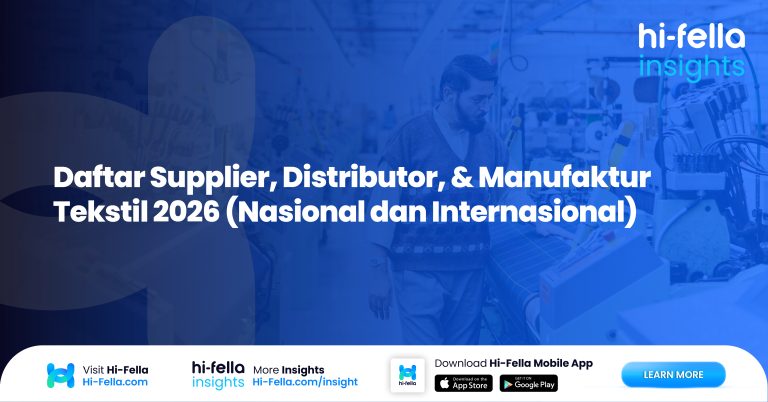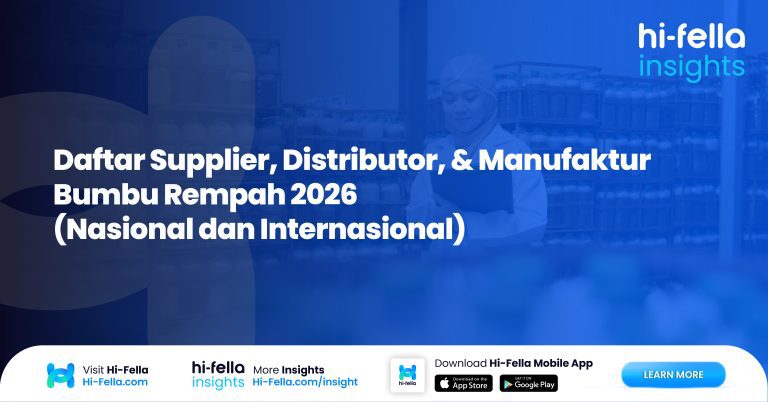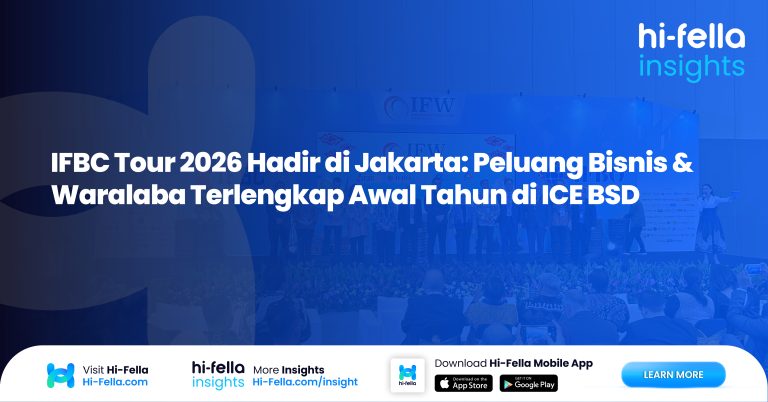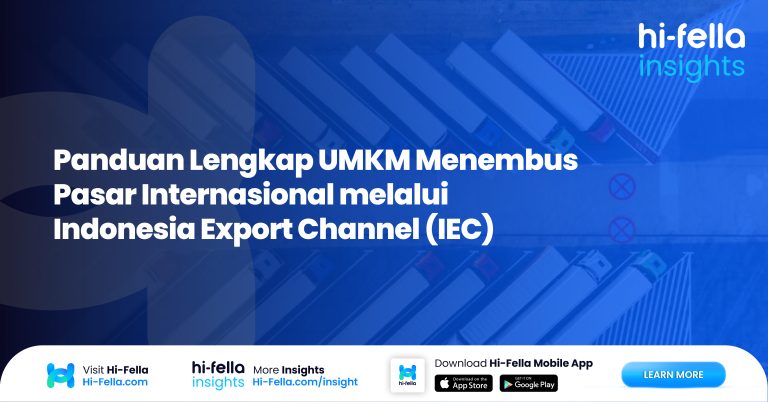Table of Contents
Motif ekonomi bagi pengusaha seringkali menjadi salah satu fondasi utama dalam perjalanan membangun bisnis mereka.
Motif ekonomi tersebut bukan sekadar tentang mencari keuntungan saja, tetapi lebih luas, yaitu seperti mencakup aspirasi untuk mencapai kebebasan finansial, kemampuan untuk melakukan inovasi, dan lainnya.
Lantas, apa saja motif ekonomi bagi pengusaha dan contohnya? Mari kita simak selengkapnya
Pengertian Motif Ekonomi

Sumber: Pexels
Dilansir dari StudySmarter, motif ekonomi adalah alasan individu untuk melakukan aktivitas ekonomi guna mencapai kemakmuran. Motif ekonomi yang paling dasar adalah untuk memenuhi kebutuhan hidup.
Dorongan untuk melakukan aksi ekonomi terbagi menjadi dua, yaitu motif intrinsik dan ekstrinsik. Artinya, motif ekonomi bisa berasal dari diri sendiri atau pengaruh dari lingkungan luar.
Secara sederhana, motif intrinsik dilakukan karena adanya dorongan dari dalam diri untuk memperoleh barang dan jasa. Sebaliknya, motif ekstrinsik dilakukan karena keinginan untuk mendapatkan barang dan jasa yang dipengaruhi oleh faktor luar.
Mengapa Seseorang Memilih Menjadi Pengusaha?

Sumber: Pexels
Salah satu alasan utama mengapa orang memilih untuk menjadi pengusaha adalah keinginan untuk kebebasan finansial.
Selain itu, banyak juga individu tertarik pada aspek kewirausahaan yang memungkinkan mereka untuk menjadi bos bagi dirinya sendiri, membuat keputusan, dan mengontrol jalannya karier mereka.
Kebebasan ini tidak hanya dalam hal pengelolaan waktu dan gaya hidup, tetapi juga dalam hal mewujudkan visi dan ide mereka sendiri.
Apa Saja Motif Ekonomi Bagi Pengusaha?
Berikut yang termasuk dalam motif ekonomi bagi pengusaha ialah:
1. Mencari Keuntungan Finansial
Motif ekonomi bagi pengusaha yang pertama ialah mendapat keuntungan finansial. Motif ini biasanya menjadi pendorong utama dibalik proses menjalani bisnis sendiri.
Pengusaha memulai bisnis dengan harapan mendapatkan pendapatan dan keuntungan lebih tinggi daripada jika mereka berstatus sebagai karyawan.
Contohnya seorang chef yang membuka restorannya sendiri untuk memanfaatkan peluang bisnis di pasar kuliner, dengan harapan keuntungan yang didapat bisa lebih tinggi dibandingkan menjadi pegawai di sebuah restoran.
2. Kebebasan Finansial
Kebebasan finansial bagi mereka bukan hanya soal memiliki cukup uang, tetapi lebih kepada memiliki kontrol atas waktu dan keputusan ekonomi.
Dorongan untuk mencapai kebebasan finansial ini tidak hanya mengarah pada pencapaian tujuan pribadi saja, tetapi juga dapat digunakan pada proses efisiensi dalam operasional bisnis mereka.
Hal ini karena dengan kebebasan finansial yang didapatkan, pengusaha dapat lebih banyak mengambil risiko dan membuat keputusan yang bahkan bisa mengubah arah pasar, sekaligus memberikan kontribusi yang signifikan terhadap perekonomian negaranya.
Contohnya seperti seorang pengusaha yang mendirikan bisnis sendiri dan berhasil mendapatkan profit. Keberhasilan ini memberikan pengusaha tersebut kebebasan finansial untuk bereksperimen dan berinovasi. Dia tidak hanya fokus pada tujuan pribadinya tetapi juga menggunakan kebebasan ini untuk meningkatkan efisiensi operasional perusahaan.
3. Memiliki Kontrol atas Masa Depan Ekonomi
Pengusaha sering ingin mengontrol nasib ekonomi mereka sendiri, daripada mengandalkan pasar tenaga kerja atau keputusan perusahaan lain yang bisa saja terkena PHK secara tiba-tiba. Mereka mencari keamanan dan stabilitas keuangan melalui keberhasilan bisnis mereka.
Contohnya seorang manajer yang memutuskan untuk meninggalkan pekerjaannya dan memulai bisnis dalam industri yang ia kenal dengan baik untuk memastikan keamanan finansial jangka panjang.
4. Pengembangan Inovasi dan Teknologi
Motif ekonomi bagi pengusaha seringkali melampaui pencapaian kebebasan finansial, terutama bagi para pengusaha yang berfokus pada pengembangan inovasi dan teknologi.
Pengusaha yang memiliki motif ini cenderung tertarik untuk bisa berkontribusi terhadap perubahan teknologi, tidak hanya untuk keuntungan pribadi melainkan juga untuk membawa dampak positif yang lebih luas.
Sebagai contoh, seorang pengusaha di bidang bioteknologi mengembangkan perangkat medis baru yang bisa mengatasi penyakit tertentu.
Motif ekonomi dari pengusaha tersebut bukan hanya soal keuntungan finansial dari penjualan perangkat tersebut, tetapi juga dorongan untuk memberikan kontribusi dalam bidang kesehatan.
Pengembangan teknologi semacam ini sering kali memerlukan investasi besar, riset yang mendalam, dan kerja sama lintas sektor. Motivasi ekonomi di sini bertindak sebagai pendorong untuk melewati tantangan tersebut.
Dengan fokus pada inovasi dan pengembangan teknologi, pengusaha ini juga mendorong pertumbuhan ekonomi, menciptakan lapangan kerja, dan memajukan pengetahuan di sektornya.
Kesimpulan
Memilih menjadi pengusaha adalah suatu perjalanan yang penuh tantangan yang tidak cocok untuk semua orang.
Namun, dengan motif ekonomi bagi pengusaha yang kuat dapat menjadi sangat menguntungkan bagi bisnis mereka itu sendiri.
Dorongan ekonomi yang kuat ini dapat membantu mereka dalam menghadapi tantangan, menciptakan inovasi, dan mengambil keputusan strategis yang penting untuk pertumbuhan bisnis.
Pengusaha yang memiliki motif ekonomi yang kuat seringkali lebih gigih, kreatif, dan mampu menemukan solusi unik untuk masalah yang dihadapi.
Dengan demikian, motif ekonomi bagi pengusaha bukan hanya tentang keuntungan finansial, tetapi juga tentang membangun sesuatu yang berdampak dan berkesinambungan, baik bagi diri sendiri maupun bagi masyarakat.








